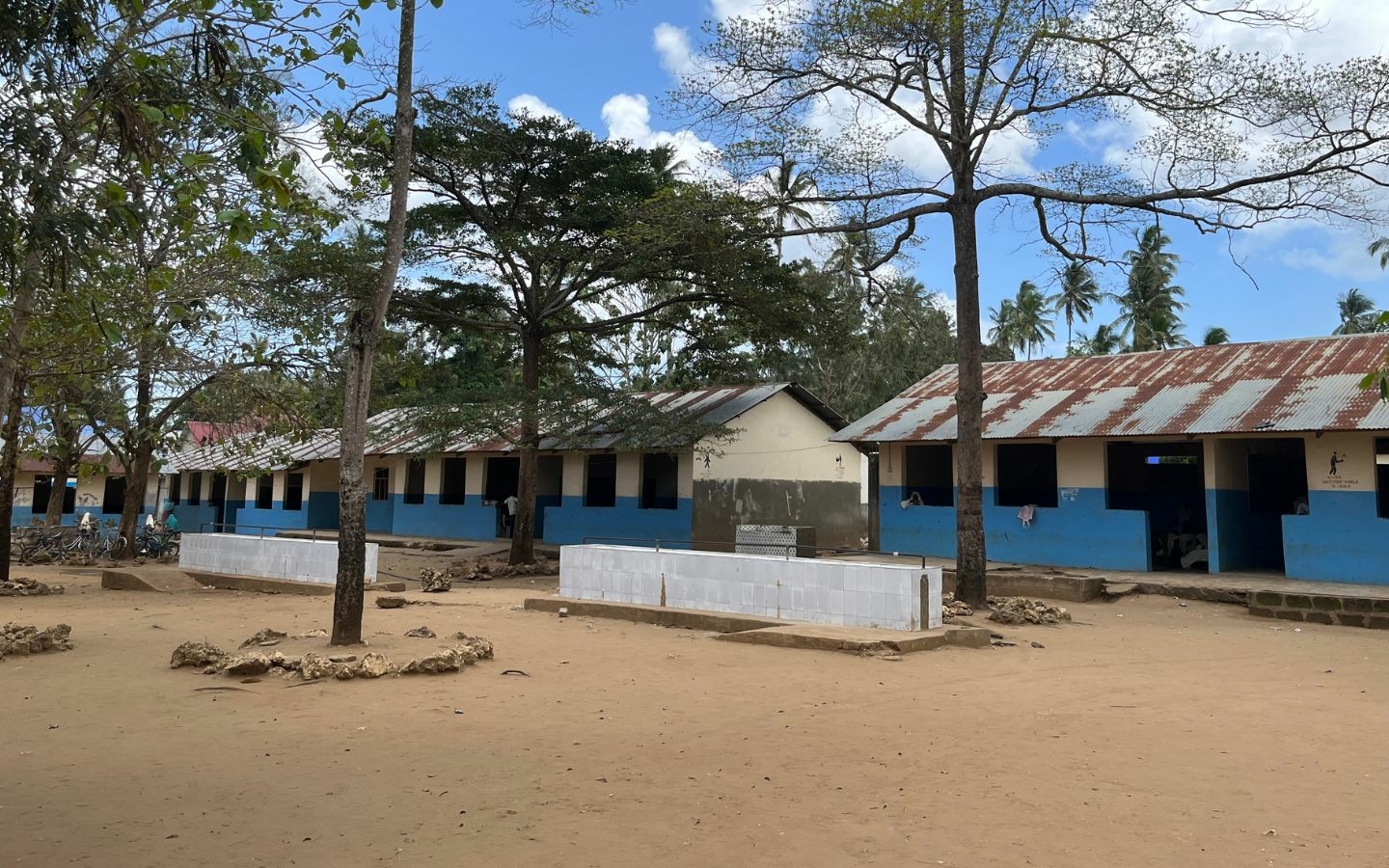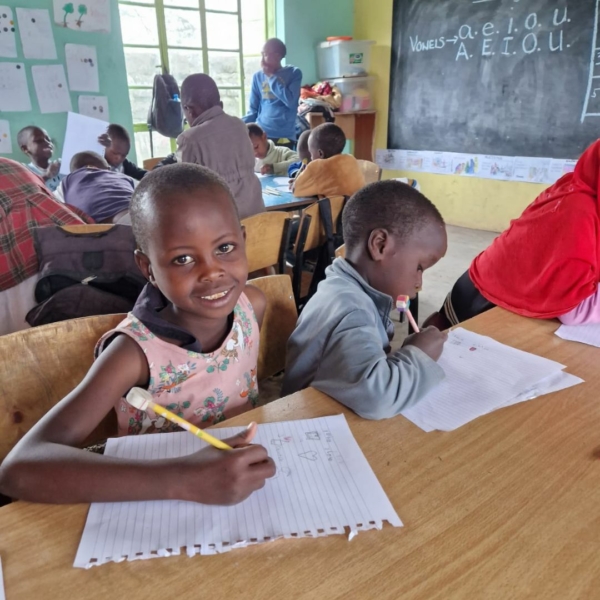
We work with 34 amazing schools in developing areas of Ghana, Kenya and Zanzibar.
Our partner schools are a wonderful mix of small, independent primary schools to large comprehensive secondary schools that lack many of the facilities that many in the UK take for granted. The schools are independent from African Adventures; we don’t own or run them, and we never will. The reason for this is simple: the people who run our partner schools know their local communities, and their needs, far better than we ever could.
Instead, we partner with schools that have already been set up, so that we can help them extend their outreach and give more disadvantaged children the chance of a better future. We support schools because we believe that education is the most effective way to help alleviate long-term poverty.
There are four core challenges at our partner schools
Overcrowded Classrooms
At nursery school level, it is not uncommon for classrooms to have 60 children and just one teacher.
Lack of Resources
Most of our partner schools cannot afford to provide their students with text books, stationery and sometimes even desks.
Inadequate Facilities
Most of our partner schools lack the facilities they need to provide a quality education to each child.
Food security
Most students who attend our partner schools come from families below the international poverty line, and very few will have three meals each day.
Find out how you can make a difference
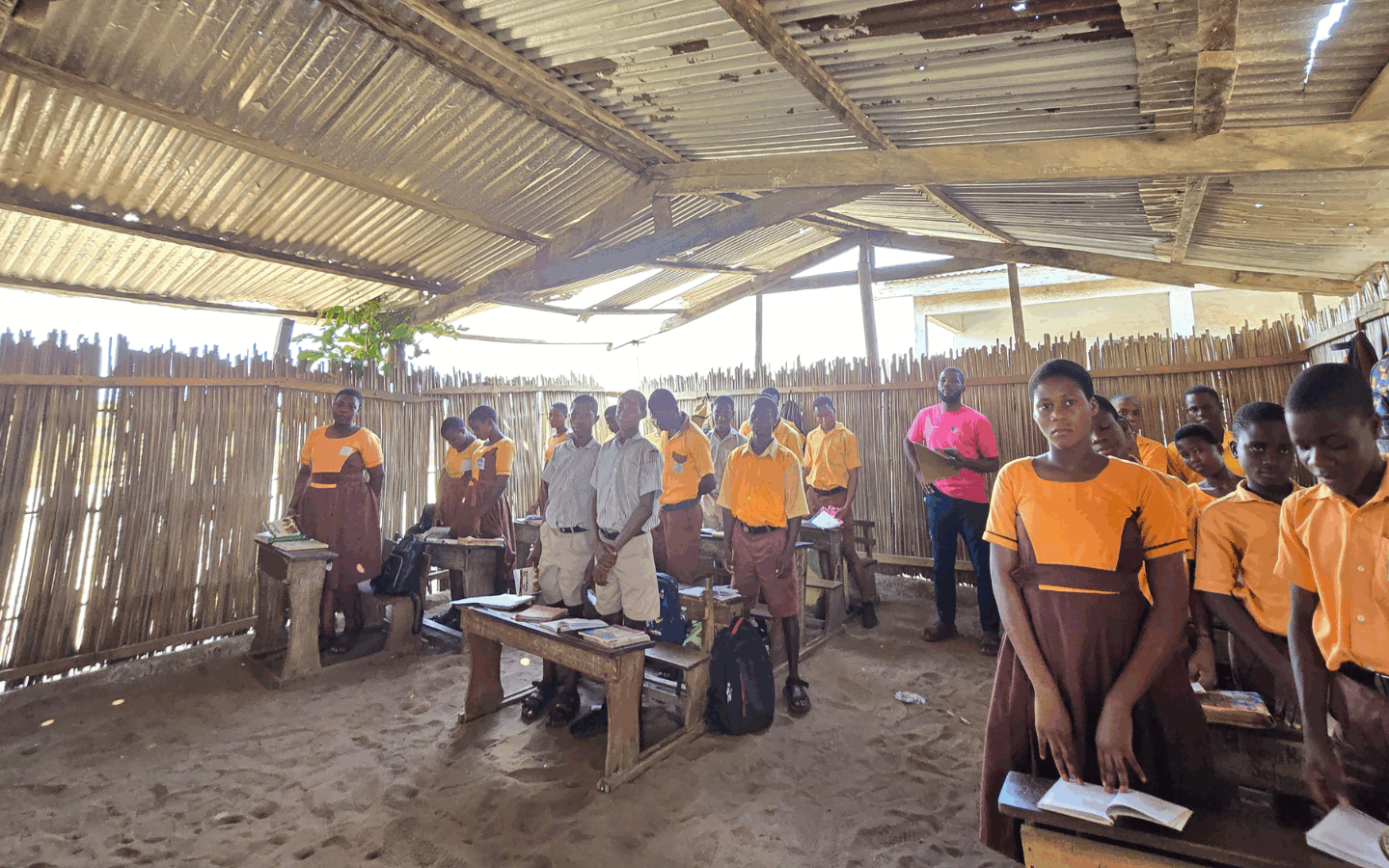
Ghana
We work with 11 schools based in Ghana’s rural Volta region, where poverty is widespread. The main industries are agriculture and fishing, and children often work alongside their families to bring in an income, instead of attending school. We are working with these schools to try to encourage more children to start school earlier and stay in education longer.
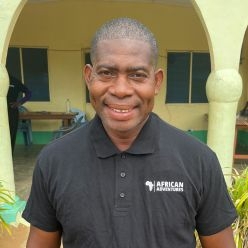
Siva Vordzorgbe, Programme Director
“Hello, my name is Siva and I run African Adventures’ programmes in Ghana. The Volta region is very beautiful, but many people live in poverty. I was actually a street child myself – after becoming homeless, I began working on a farm to pay my school fees. I first went to school when I was 13. I know how much volunteers help our partner schools, giving children the opportunity to receive an education.”
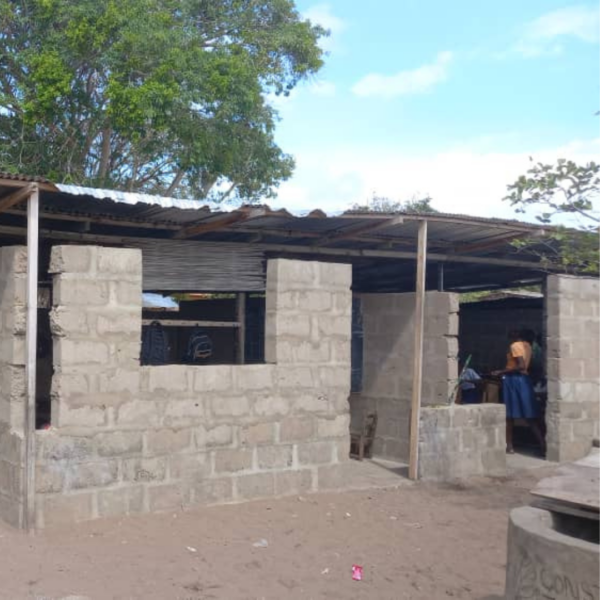
Little Roses
Little Roses is a private primary and junior secondary school in Anloga, Ghana and we partnered with them in 2018. The school educates approximately 200 children between the ages of seven and 16.
Although Little Roses is privately run, the school is severely underfunded and lacking basic school facilities. Our volunteers are working to develop the school site by moulding bricks and levelling classroom floors to transform all classrooms into permanent, brick-built structures to create a safe learning environment and to prevent them from flooding.
Our volunteers have made fantastic progress in constructing a four-unit classroom block, which is set to be finished this year.
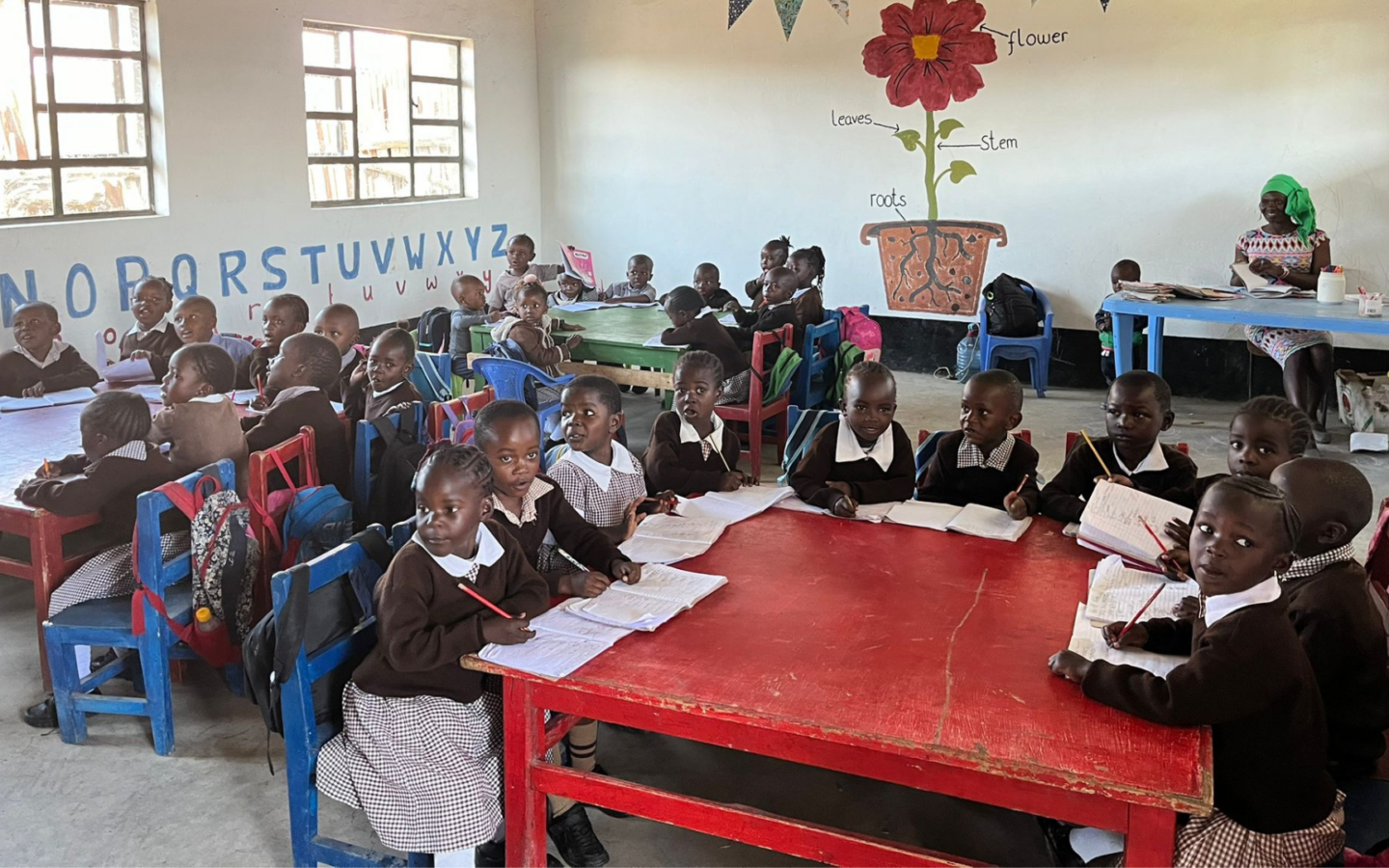
Kenya
We work with 17 schools based in Nakuru, Kenya’s fourth-largest city. Without these schools, it is unlikely that some local children would receive an education at all, due to the costs of items such as uniforms, desks and textbooks. We are working with the schools to bridge this educational gap.
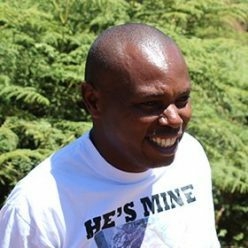
Alex Maina, East Africa Director
“Hello, my name is Alex and I run African Adventures’ programmes in Kenya, and I also founded The Walk Centre with my wife, Patricia in 2005. Kenya really is one of the friendliest places around but many people in our community live in poverty. Volunteers make such a difference at our partner schools – helping children to reach their full potential who may not otherwise be able to.”
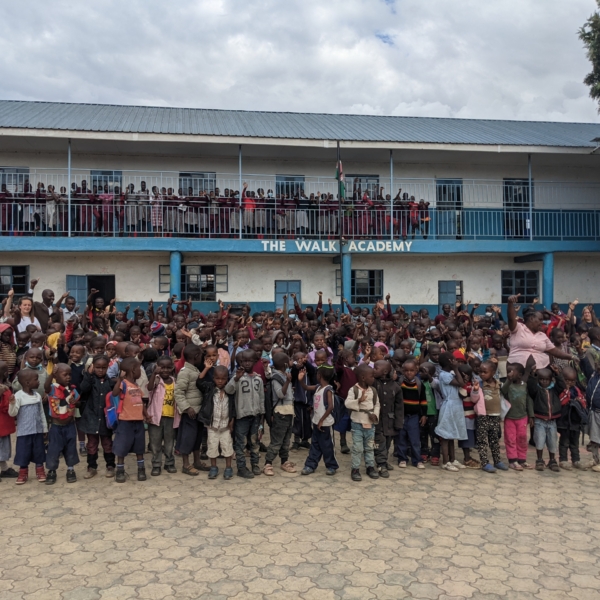
The Walk Centre
The Walk Centre was where African Adventures was born, being the first school we partnered with in 2009, after Dan Mew, African Adventures Founder, volunteered there in 2007.
The Walk Centre was set up in 2005 by Alex and Patricia Maina in Nakuru, Kenya to provide a free nursery education and daily meal to children living in slum areas near the town’s dumpsite. Through development of the school site, The Walk Centre now provides a free primary education aswell and two daily meals to around 400 children between the ages of four and 14.
In 2015, Chichester College, who have volunteered at The Walk Centre every year since 2012, said they wanted to help Alex and Patricia fulfil their dream of building a primary school, which would enable them to offer all their nursery students a full – and completely free – primary education. We thought it was a fantastic idea and worked with Chichester College to help raise the £82,000 required to build a 10-classroom, two-storey building opposite the nursery school classrooms which opened in 2017, thanks to their students who supported with the build.
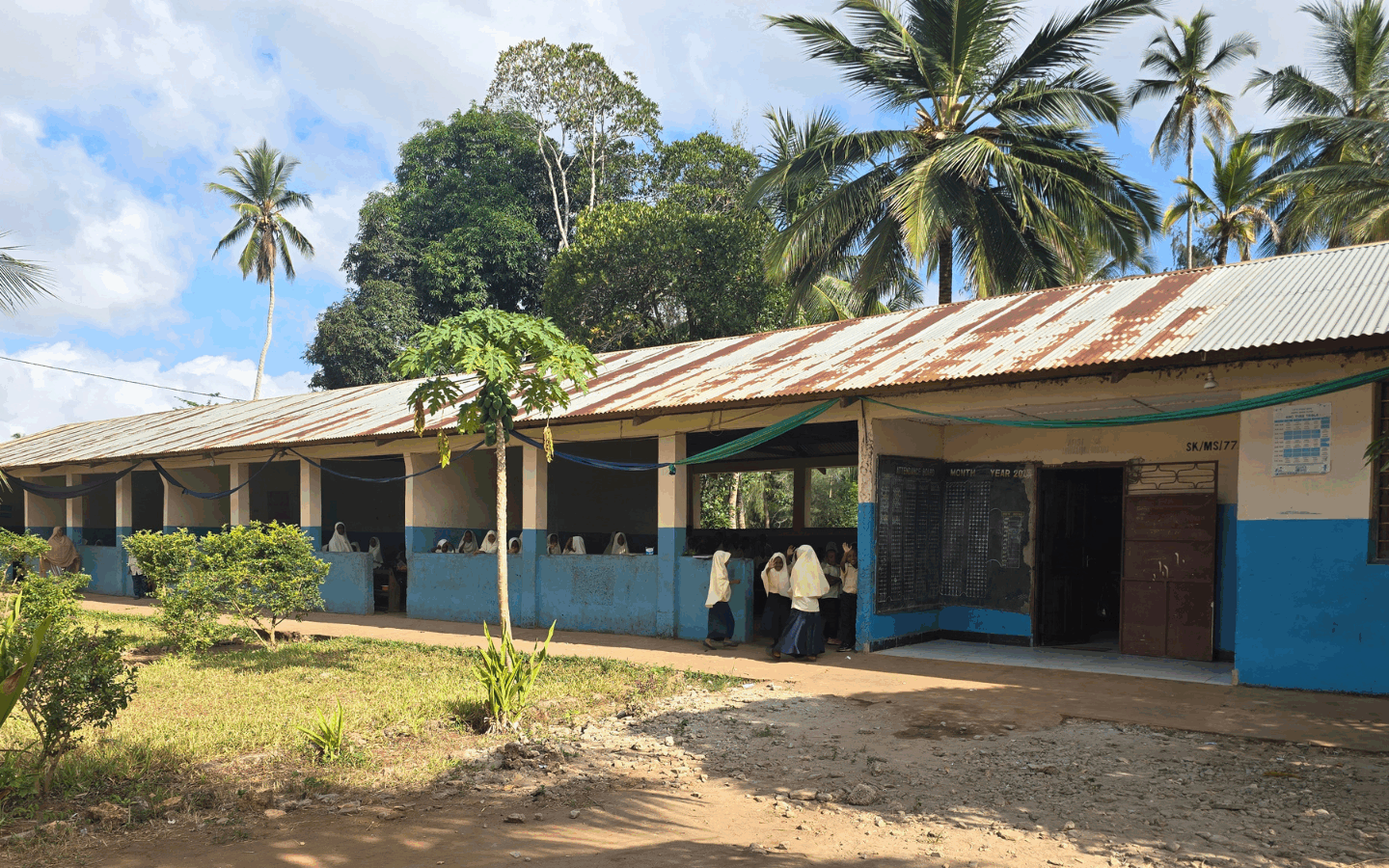
Zanzibar
We work with six schools located on the outskirts of Zanzibar City. These government-run schools are severely underfunded and are struggling to cope with a growing population of young people. Overcrowding at some of these schools is so serious that the school has two sittings, with half of its students attending in the morning and the other half attending in the afternoon – thereby literally halving the children’s access to education.
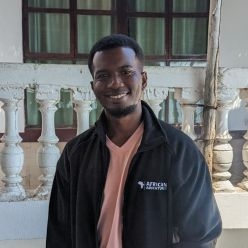
David Zuberi, Senior Trip Host
“Hello, my name is David and I am the Senior Trip Host for Zanzibar. People come from afar to experience the hotels here but, sadly, many people have tough lives here. The schools are overcrowded and underfunded, and this is preventing the next generation of Zanzibaris from achieving their potential. I am so proud that we are changing this, and our volunteers are leaving a lasting legacy on a beautiful corner of the Earth.”
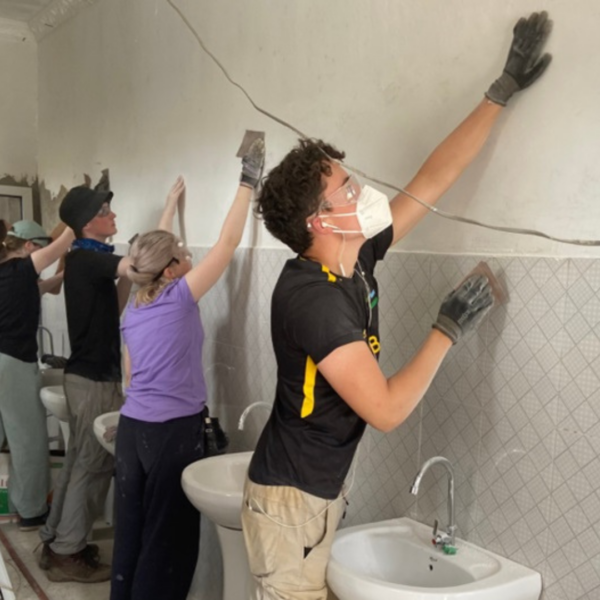
Kinuni School
Kinuni School is a government-run primary school which provides a free education to over 6,700 students between the ages of four and 16. Although Kinuni is run by the government, it is severely underfunded and overcrowded, with 22 classrooms, averaging a class size of 100 students.
In 2018, we partnered with Kinuni, and since then, we have sent hundreds of volunteers there who have helped to renovate classrooms, assisted with teaching, constructed a toilet block with handwashing stations and a menstrual health privacy room and renovated an old classroom into a library.
This year, volunteers continued renovating the classrooms by installing iron windows. They also laid a new, level concrete floor on half of the preschool ground.

